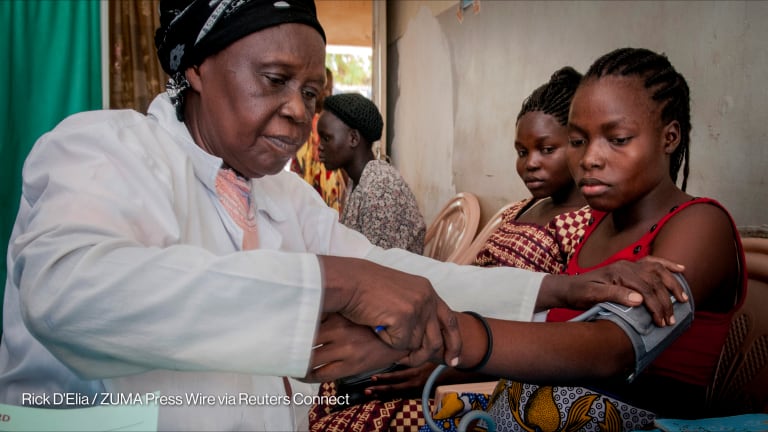Opinion: Helping women get into science early for future pandemic response

Each era has its own struggles. The burden of emerging and reemerging infectious diseases is heavy and growing in today’s world, and the COVID-19 pandemic is the ultimate example of the burden that infectious diseases can cause globally, without exception. All societies need to be prepared from multiple perspectives — including infrastructures, equipment, and human resources.
The coronavirus reminds us that we need more people engaged in preparedness for and response to future outbreaks and pandemics. Women — making up a large portion of the world’s population — do not have to be left behind. They need to be engaged in science to be equipped to deal with global challenges.
Opinion: Let's get more girls into STEM — for them and for us all
This op-ed offers some key ways to help increase girls' participation in STEM, such as changing gender norms and mindsets, exposing girls to relevant role models, and increasing basic education for all.
And as the interrelationships between living beings and the planet are becoming more evident, it is time to approach global health challenges in a broad manner to help prevent future pandemics. An example of such an approach is “one health” — a multidisciplinary field that examines the links between human activity, animals, and the environment.
Research suggests that physicists, chemists, and biologists are likely to view a young male scientist more favorably than a woman with the same qualifications. In Rwanda, STEM — science, technology, engineering, and mathematics — is a field some women shy away from; culturally, women have been known to go for “softer” careers. However, there is hope that this will change in the near future, as much effort is being put in girls’ education, particularly in STEM fields.
We need a population that will always be ready to respond to future global health emergencies like COVID-19. Encouraging young girls to engage in STEM fields is key.
—An initiative known as Women in Science has sought to inspire future young female scientists by raising awareness of opportunities for science-based careers in Rwanda, with a primary focus on the field of one health. The project, made possible through the One Health Fellowship — a collaborative program between several universities and funded by the Cummings Foundation — targeted O-level students, aged 14 to 16 years old, at the point of choosing their future career paths.
Half-day science seminars were organized for students in Rwandan secondary schools, in collaboration with the Rwandan Association for Women in Science and Engineering. There, the students were able to see what career opportunities are available in STEM fields from the perspective of one health.
The first seminar in May 2019 was attended by 68 students, and a second one was attended by 135 students a few days later. To measure impact, we plan to conduct surveys before and after future seminars — following the current lockdown measures.
It is essential for young students to have the opportunity to interact with female scientists to better understand the role and contributions of women in science for addressing challenging global health emergencies. Among the speakers were women scientists from various interdisciplinary backgrounds, bringing together high-level academics from the University of Rwanda, the University of Global Health Equity, the University of Kigali, and the Adventist University of Central Africa.
As young girls prepare to decide and engage in their future careers, it is also important that they get the opportunity to ask questions regarding STEM careers and pathways and to meet female role models. This could help them be more confident in their pursuit of a career in a scientific field.
More than ever, there is a need to engage more girls to enter scientific fields with a holistic interdisciplinary approach. We need a population that will always be ready to respond to future global health emergencies like COVID-19. Encouraging young girls to engage in STEM fields is key. Above all, this challenging time has taught us that we need to be prepared from many angles, and education is essential for better response.
Search for articles
Most Read
- 1
- 2
- 3
- 4
- 5




